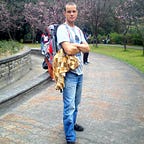IELTS Reading: Choosing a Title for a Passage: Kepler Telescope
Posted on October 17, 2015 by Paul Davey
The passage shown to you might be one or two paragraphs long. You’ll be given a list of possible titles and asked to pick one.
NASA’s Kepler Space Telescope is tasked with finding small, rocky worlds orbiting distant stars. However, exoplanets aren’t the only thing Kepler can detect — stellar flares, star spots and dusty planetary rings can also pop up in the mission’s observations.
But there’s also been speculation that Kepler may have the ability to detect more than natural phenomena; if they’re out there, Kepler may also detect the signature of artificial structures orbiting other stars. Imagine an advanced civilization that’s well up on the Kardashev scale and has the ability to harness energy directly from its star. This hypothetical alien civilization may want to construct vast megastructures, like supersized solar arrays in orbit around their host star, that could be so big that they blot out a sizable fraction of starlight as they pass in front.
Choose a title for the passage
- A: The Kepler Space Telescope explores the Universe
- B: The possible discovery of a massive artificial construction
- C: Kepler discovers more than exoplantets
- D: Aliens are out there
- E: Kepler discovers massive alien structures orbiting stars
- F: Kepler gets a new job
Answer below the image.
Answer: B
Analysis
First try to understand the structure of the passage. The first paragraph is describing what Kepler has already done (discover exoplanets and other natural phenomena), so obviously the passage (and the title) is going to be about more than just this. The second paragraph is about those other things.
So, the answer is therefore going to be in the second paragraph.
The key, as always, is to look for synonyms and paraphrasing:
massive: megastructures, supersized, sizable.
construction: structure
So, the second paragraph is about big things, the discovery of big things, the discovery of big things that have been constructed. But what kind of big structures?
… artificial structures orbiting other stars.
Furthermore, the whole paragraph is conditional and hypothetical, using words like:
if; may; speculation; imagine; hypothetical
which means that the big structures they are talking about are possible, but haven’t been found yet.
A: The Kepler Space Telescope explores the Universe.
True, but way too general.
B: The possible discovery of a massive artificial construction
We know that many words in the passage mean massive; and we know that artificial means not natural.
C: Kepler discovers more than exoplantets
True (from the first paragraph we know that Kepler has discovered other natural things besides exoplanets), but the passage is about the possibility of discovering something that is not natural.
D: Aliens are out there
No, the aliens might be out there and they might be building structures that Kepler mightbe able to see one day.
E: Kepler discovers massive alien structures orbiting stars
No, Kepler may be able to do this in the future, but not yet.
F: Kepler gets a new job
True, but what is that new job? The passage is about exactly what new things Kepler might be able to do. And the title must reflect this.
The next lesson will offer some Speaking Module questions for practice.
This entry was posted in Listening. Bookmark the permanent link.
Originally published at http://ieltsintaiwan.wordpress.com on Oct 07, 2015.
About Paul Davey
I’m Paul from Bristol, England. I am an IELTS tutor available for face-to-face classes in Taipei and Skype classes anywhere in the world. I’m based in Yonghe, New Taipei City — very close to Taipei. I have been teaching for many years and I am good at it. I’m patient and never tire of correcting students’ mistakes. I know many good ways for students to learn quickly and make a lot of progress in a short time. You won’t be wasting your money. I especially know the difficulties faced by Chinese speakers, and I know how to overcome these difficulties. IELTS is my primary concern and over the years I have taught hundreds of students in the UK, Hong Kong, Taiwan, and other spots around the world. I know what the examiners look for and I know how to increase your band and get the grade you need to make your dream come true. I have been blogging about IELTS for about a decade. I started my first website in 2007, before beginning to blog at IELTS Tutor on the Hello UK website. Now I blog only at IELTS in Taiwan and Around the World. I majored in Environmental Sciences at the University of East Anglia, UK, graduating with a bachelor’s degree (2/1 with honours). I obtained my language-teaching qualification in 2006, which is accredited by the Royal College of Teachers. Before I began teaching, I worked in a software company in the UK, writing and selling software solutions. After teaching for many years I took a five-year break to run my own retailing business. Following that adventure, I returned to full-time teaching. For the last 11 years, I’ve been in Taiwan, where in addition to my IELTS work, I have taught corporate classes at Taipei Bank, Pfizer, and Chinese Petroleum Corporation (CPC, Taiwan). I have interests in many fields including travel, literature, science and history.
